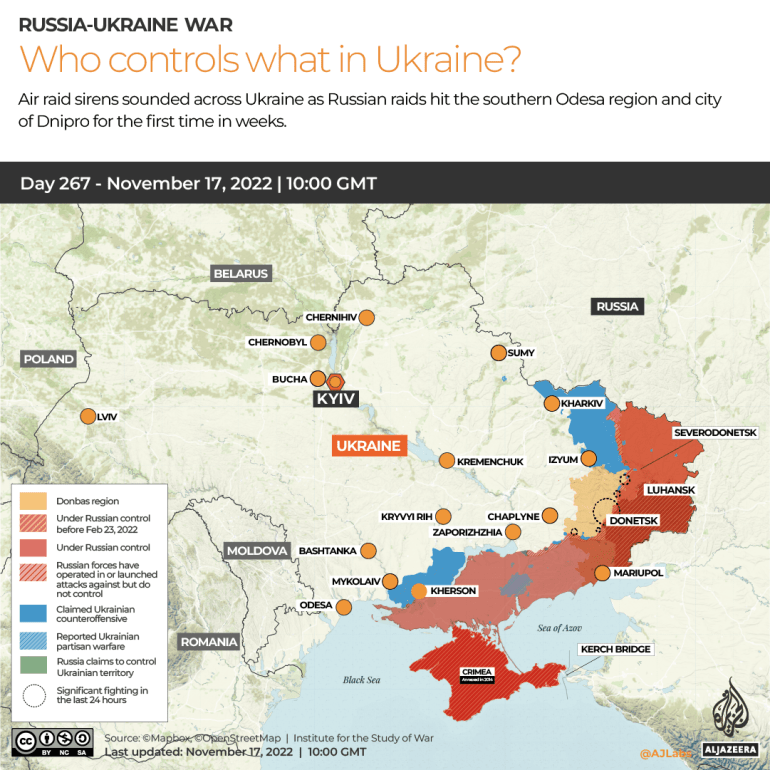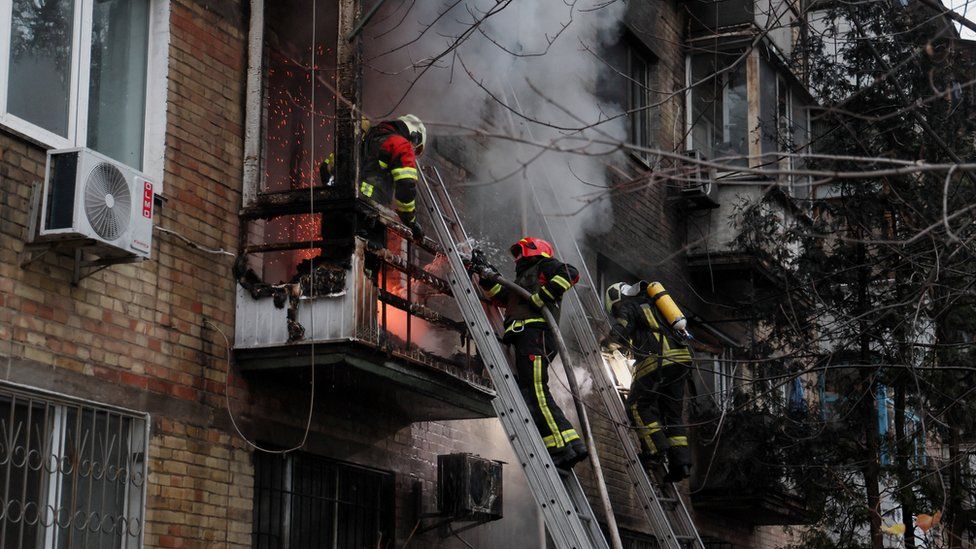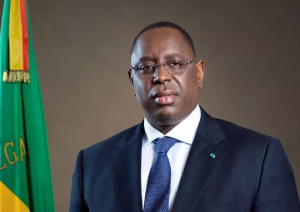More than 10 million Ukrainians are without electricity after dozens of Russian air attacks on the country’s energy infrastructure as winter sets in and temperatures plummet, President Volodymyr Zelensky has said.
Repeated barrages disrupted electricity and water supplies across Ukraine, but Russia blamed the civilian suffering on Ukraine’s refusal to negotiate an end to the war that began on February 24.
On Thursday, residents of the recently recaptured city of Kherson in southern Ukraine rushed to stockpile food, blankets, and winter clothing, with shouting matches and shoving erupting as volunteers tossed supplies into the crowds that waited hours in freezing rain.
Several Ukrainian cities were attacked as the latest assault coincided with the season’s first snow, and officials in Kyiv warned of “difficult” days ahead.
“Currently, more than 10 million Ukrainians are without electricity,” Zelenskyy said on Thursday, adding the regions of Odesa, Vinnytsia, Sumy and Kyiv were most affected.
Ukrainian energy company Ukrenergo said the “cold snap” had brought increased demand in regions where electricity was recently brought back, and government energy adviser Oleksandr Kharchenko told media 50 percent of Ukrainians were experiencing disruptions.
“Civilian sites are the main target. Russia is waging war on electricity and heat for people by blowing up power plants and other energy facilities,” said Zelenskyy.
In the southern Odesa region, a Russian raid hit infrastructure and the governor warned residents of the threat of a “massive” missile attack, urging them to seek shelter.
The eastern region of Kharkiv was also struck, governor Oleg Synegubov announced, adding Russia hit “critical infrastructure”.
‘This is their consequence’
In response, Zelenskyy described Russia as a “terrorist state” and said Moscow “wants to bring Ukrainians only more pain and suffering”.
Russia, however, said Kyiv was ultimately to blame for the blackouts.
“The unwillingness of the Ukrainian side to settle the problem, to start negotiations, its refusal to seek common ground – this is their consequence,” Kremlin spokesman Dmitry Peskov said.
“First they negotiate, then they refuse to negotiate, then they pass a law that prohibits any kind of negotiations, then they say they want negotiations, but public ones,” Peskov told reporters.
“Therefore, it’s difficult to imagine public negotiations … One thing is for sure: the Ukrainians do not want any negotiations.”
Peskov said in this context Moscow would continue what it calls a “special military operation”, and missile raids on targets across Ukraine were the result of Kyiv not being willing to meet at the negotiating table.
A UN agency said a serious humanitarian crisis loomed with millions facing “constant power cuts” as Ukraine’s typically long, cold winter begins.

Grain deal renewed
The raids on Ukraine’s power grid follow a series of battlefield setbacks for Russia, including last week’s retreat from Kherson.
However, Moscow and Kyiv managed to extend an agreement allowing Ukraine to export grain through the Black Sea after the deal’s looming expiration sparked fears for the global food supply.
The Black Sea grain initiative will be extended for 120 days, Turkey, Ukraine and the United Nations announced. The agreement provides safe passage for cargo ships using Ukraine’s Black Sea ports.
UN chief Antonio Guterres said the deal was “essential” to averting a worldwide food crisis.
Russia confirmed the deal was renewed. “Any attempts to use the humanitarian corridor in the Black Sea for provocative military purposes will be firmly suppressed,” its foreign ministry warned.
Source:aljazeera.com













